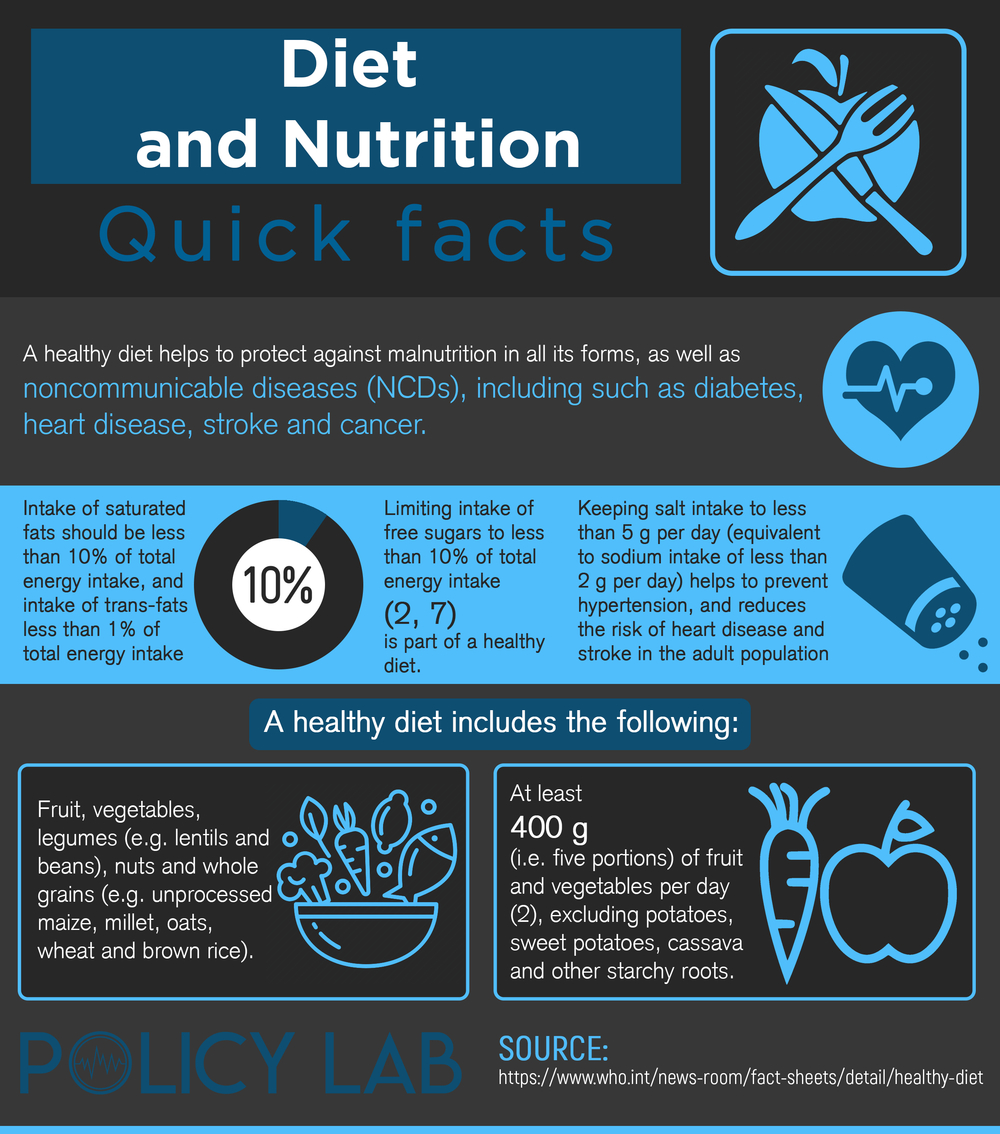Match to Diet And Nutrition Clinical Trials
The foods that we eat are the foundation of a good health. Food does not only provide us with the essential nutrients, vitamins, and minerals that our bodies need to function; a good diet is key for preventing chronic conditions such as heart disease and diabetes, both of which are among the top leading causes of death in the United States.
When we think of food and nutrition in relation to our health, we tend to only think about obesity. In many countries, including the United States, obesity is an epidemic and is one of the main culprits of premature and preventable deaths.
But obesity is not the only consequence of a bad diet; too many or too little of particular nutrients can also be very detrimental to your health. Contrary to obesity, which is often caused by poor diet choices and excessive eating, eating too little or not eating the adequate amount of nutrients can cause malnutrition, or nutritional deficiencies. A nutritional deficiency means that your body is not receiving the nutrients it needs to function properly.
Some of the most common nutrient deficiencies include:

Calcium Deficiency
Also called hypocalcaemia, a calcium deficiency happens when a person is not getting enough calcium from the foods that they eat. Hypocalcaemia increases the risk of developing bone disorders such as osteoporosis, osteopenia, and makes you more likely to suffer from bone fractures.
Vitamin D Deficiency
A vitamin D deficiency can occur in those who eat restrictive diets such as vegans or in older adults who don’t eat enough fish or diary. Low levels of vitamin D can cause extreme weakness, high blood pressure, and even depression.
Iron Deficiency
One of the most well known side effects of an iron deficiency is anemia. Iron deficiency anemia occurs when a person doesn’t get enough iron from their diet, and this can lead to symptoms such as weakness, headaches, fatigue, and an irregular heart beat.
Besides from giving you all the nutrients you need, a good diet is one of the best preventive strategies to avoid heart disease, which is the leading cause of death in the world. Keeping your portions under control, eating the recommended amount of fruits and vegetables, and limiting the consumption of sugars and unhealthy fats has been proven to be the best methods for keeping your heart healthy and strong.
What Are Diet And Nutrition Clinical Trials?
While the first thing that comes to mind when we talk about clinical trials are drugs and medical devices, clinical trials are also performed to test new methods for screening and diagnosing conditions, and well as to test the effectiveness of health promoting interventions for specific conditions.
Clinical trials in diet and nutrition are extremely important to understanding how and why the nutrients that we eat play a role in our health. Learning how food can serve as a tool for not only preventing but also help treating many conditions can potentially save the lives of many.
Just like any other clinical trial, a food and nutrition trial is a clinical research study that has been designed by medical experts who have found a potentially beneficial therapy, intervention, or drug that needs to be tested.
Clinical trials follow very strict protocols that have to be approved by the FDA, internal review boards, and any other agencies designated to oversee that the trial is being conducted in an ethical and safe manner.
What Do I Need to Know Before Joining A Clinical Trial?
Though clinical trials are conducted by experts and always regulated by agencies that ensure the safety of all participants, you should always know that there is an inherent risk in participating in any kind of research study.
A diet and nutrition clinical trial may involve anything from taking a medication to eating a certain diet, so it is important to understand what are the components of the study and if you are willing and capable to do it before you make the commitment.
However, clinical trials are always voluntary, so you are free to withdraw your participation at any point in time without any consequences. When you agree to participate in a clinical trial you will sign an informed consent document stating that you understand and agree to participate in the study. But that doesn’t mean that you have to stay if until the end of the study should you decide you no longer want to be a part of it.
It may be useful to prepare a set of questions to ask the research team before agreeing to participate in a clinical trial to avoid any issues down the line. Some questions that you may want to consider asking include:
- What is the purpose of the study?
- How long will the study take?
- How will my personal information be handled?
- Will my participation affect my daily life?
- What are the potential risks/side effects of the study?
- Who can I talk to during the trial if I have any questions or concerns?
Diet and Nutrition Clinical Trials
Match to Diet And Nutrition Clinical Trials
Sources
- Nutritional Deficiencies (Malnutrition): Symptoms and Treatment. (n.d.). Retrieved from https://www.healthline.com/health/malnutrition
- Questions to Ask Before Participating in a Clinical Trial. (n.d.). Retrieved from https://www.nia.nih.gov/health/questions-ask-before-participating-clinical-trial